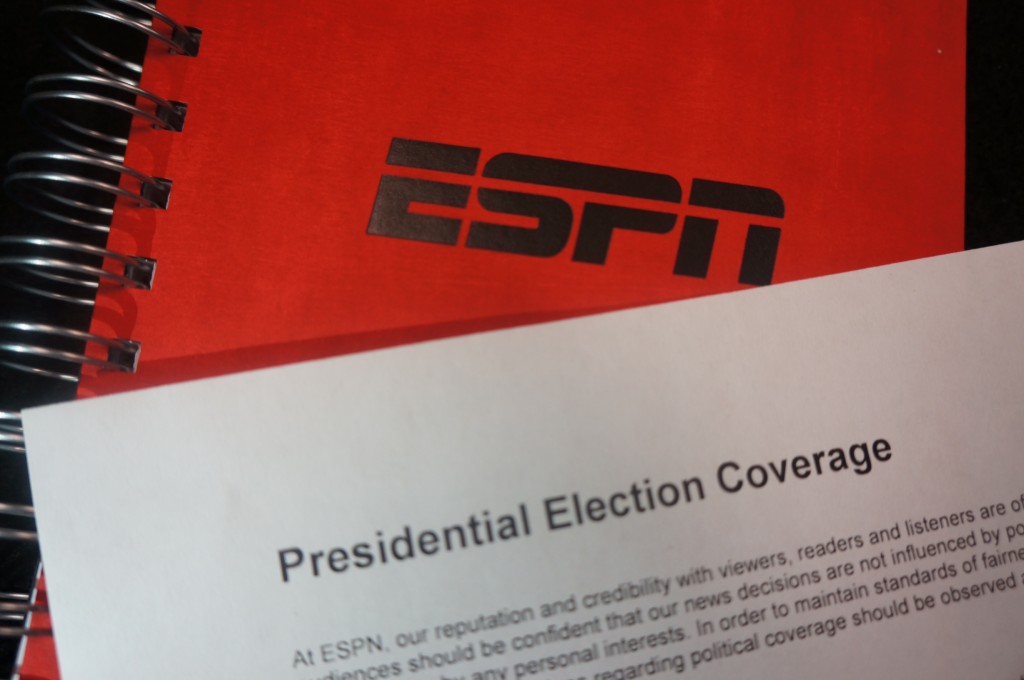Presidential election coverage policy
Editor’s Note: Patrick Stiegman is Vice President and Editor-in-Chief, ESPN.com.
At ESPN, our reputation and credibility with viewers, readers and listeners are of paramount concern. Our audiences should be confident that our news decisions are not influenced by political or commercial pressures. In order to maintain standards of fairness and impartiality, and after vetting through the ESPN Editorial Board, we have adopted the following editorial guidelines regarding political coverage for all ESPN platforms.
Presidential Election Coverage
Interviews
• In general, ESPN platforms fall outside the equal-time provisions that apply to television and radio over-the-air broadcasters. However, if interviews or other material involving candidates are used on ABC or ESPN Radio, they may trigger various equal time obligations in an election (the basic components of the equal time rule are below).
• Though ESPN’s cable platforms, ESPN.com, ESPN The Magazine and ESPN Mobile are not bound by equal-time provisions, all platforms should still make every attempt to offer balance in tone, tenor and time/space allowed on ESPN for each candidate. Fairness should rule.
• In general, unless approved by senior management, we should forgo interviews with presidential candidates until after the nominating conventions (an exception could include a sitting president in an act of office, such as welcoming a championship team to the White House). All subsequent interviews should be conducted with balance in frequency, time and tenor, as much as possible.
• The location, interviewer, timing and format of such interviews must be approved by senior management for each medium. Approved interviews should be communicated in advance across all editorial platforms, ensuring consistency, eliminating redundancy and promoting fairness.
Coverage
• Should a candidate appear at or attend a live event on our air (e.g. MLB game, college football game, etc.), announcers should avoid any political commentary, prolonged references to or live interviews with candidates. A brief mention accompanying video of the candidate is appropriate. If approved by senior news managers, interviews may be conducted or taped for reference or airing either later in the same program or at a later date.
• As it relates to news assignments, feature stories and profiles on candidates or their campaigns, all platforms should attempt to offer balance in tone, tenor and time/space allowed. We should seek interesting and compelling stories that represent the points of view and experiences of both candidates on sports-related issues. If we generate a feature related to one candidate or campaign, for example, we should seek an equal-length feature related to the other candidate or campaign.
• We should refrain from political editorializing and gratuitous references to the candidates, their campaigns or their political positions. This means no personal attacks or “drive-by” remarks in columns or on-air segments. Approved commentaries on sports-specificissues, or seeking responses from both candidates on relevant news issues, are appropriate. However, sarcasm, one-liners, perceived endorsements, attempts at humor or political criticism should be avoided.
For past ESPN policy posts visit: Endorsement Policy; Social Networking Policy; and Book Policy.








